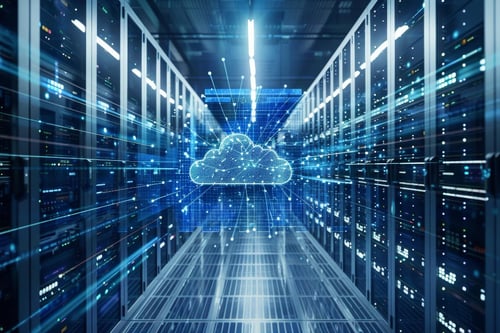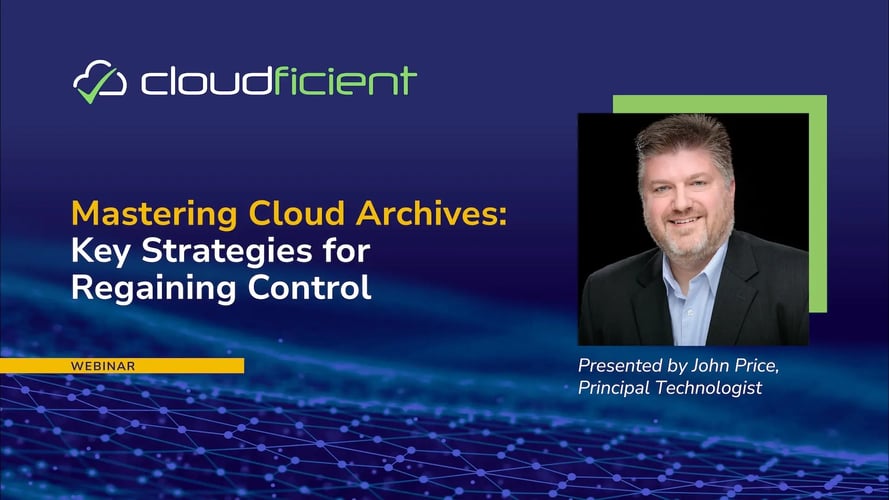- Solutions
- Cloud Onboarding & Offboarding
- Cloud Archive Migration
Cloud Archive Migration
Migrating from one cloud archive solution to another presents several key challenges that organizations must navigate carefully.
Organizations must consider the potential costs associated with data migration, such as fees for data export and import, as well as the resources needed for thorough testing and validation of the new system.
Effective planning and execution are crucial to overcoming these obstacles and achieving a seamless transition to a new cloud archive solution.

The Challenge of Vendor Lock-In
One of the most significant pain points is vendor lock-in, a scenario where companies find themselves tied to a specific service provider due to various constraints. In such situations, organizations are often forced to pay steep fees to retrieve their own data, which can range from thousands to tens of thousands of dollars per terabyte. This makes it financially burdensome to exit the current platform, effectively trapping the company in a costly relationship. The financial strain is compounded by the use of proprietary data formats that are not easily transferable to other systems.
These formats often require specialized tools or services to convert, adding another layer of expense and complexity. Furthermore, restricted API access exacerbates the issue by limiting the organization’s ability to move or export data independently. This lack of flexibility can stifle innovation and agility, as companies are unable to seamlessly integrate their data with new technologies or platforms. The combination of high costs, technical barriers, and limited data portability creates a challenging environment for businesses looking to adapt and evolve in a rapidly changing digital landscape.

Migrating From One Cloud Archiving Vendor to Another
Access our on-demand webinar which covers;
- Why Companies Migrate
-
- What are the technology and business drivers?
- Cloud Archive Migration Challenges
- How do I get my data?
- How do I make sure it migrates properly?
- Migration Guidance
- How Cloudficient Can Help
Watch On-Demand Webinar
Challenges in Data Extraction and Compliance During Migration
Data extraction is another critical challenge that organizations face during migration. Without direct API connections, companies are often forced to rely on manual processes or intermediary tools, significantly increasing migration costs, time, and risk. This reliance on manual handling not only slows down the process but also raises serious concerns about data integrity and security. The risk of data corruption or loss is heightened when there is no seamless, direct transfer path, making the entire operation more vulnerable to errors.
Additionally, companies must navigate a complex landscape of compliance and legal requirements during migration. This includes ensuring that data sovereignty is respected, retention policies are adhered to, and legal holds are maintained throughout the process. Failure to address these aspects can result in severe legal repercussions and financial penalties, further complicating an already challenging task. Therefore, a comprehensive strategy that includes robust API connections and automated tools is essential for a successful and secure data migration.


The Importance of Technical Support in Data Migration
Technical support is crucial to a successful migration. Given the complexities of transitioning large volumes of data, particularly from a legal or compliance perspective, having access to a skilled team and reliable migration tools is essential. This team should be well-versed in the nuances of data governance, regulatory requirements, and the specific needs of the organization. Reliable migration tools should offer robust features such as data integrity checks, encryption, and seamless integration with existing systems.
Organizations that fail to plan for these challenges can face delays, increased costs, and potential disruptions to their critical business processes. These disruptions can lead to compliance violations, legal repercussions, and a loss of trust from stakeholders. Therefore, investing in comprehensive technical support and advanced migration tools is not just beneficial but imperative for ensuring a smooth and efficient transition.

Get Started With Your Cloud Archive Migration Project Today!
Latest Blog Posts

Why Microsoft 365 Was Never Built for Journaled Email Data
Journal Data doesn’t belong in Microsoft 365. Let's look at why that is, and what can be done instead.

Why Inference Is Not Defensibility: The Case for Reconstruction-Grade eDiscovery
In modern eDiscovery, we talk about “context” as if it’s something we can always recover later through analytics, heuristics, or educated guesswork....

Why Identification is the Nexus of Defensibility in eDiscovery
Spoliation tends to get lumped in with failed preservation efforts, and while this is technically true, the real culprit is usually improper or...
-3.png?width=250&height=33&name=Untitled%20design%20(18)-3.png)
-3.png?width=527&height=69&name=Untitled%20design%20(18)-3.png)
.png?width=600&height=79&name=Untitled%20design%20(18).png)